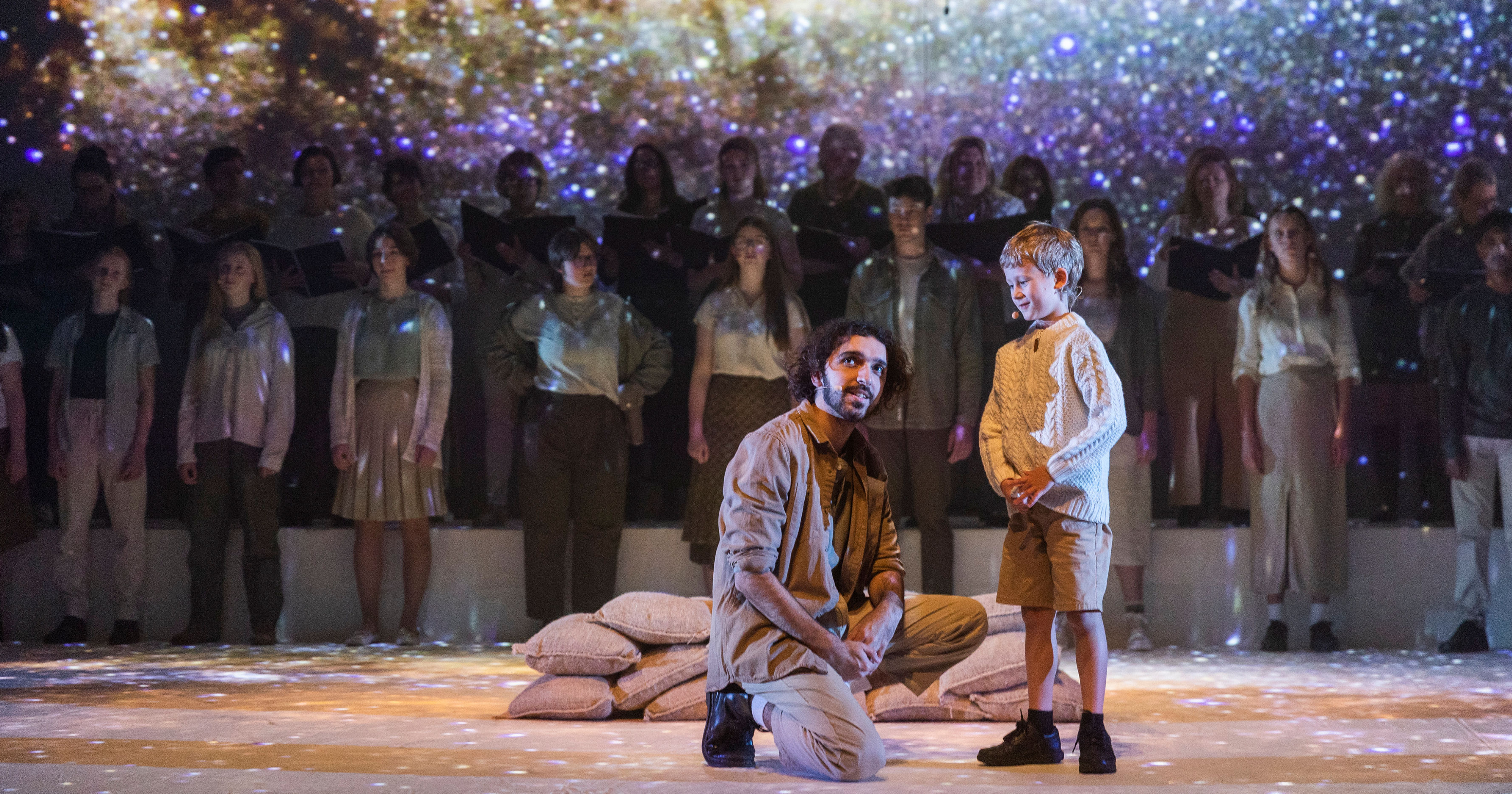Exploring one of opera's rarest voice types with Wesfarmers Arts Young Artist Brett Peart
Wesfarmers Arts Young Artist Brett Peart's vocal journey has taken an exciting turn. Originally trained as a Baritone, Brett has now started singing as a Heldentenor, one of opera's rarest voice types. In this blog, he shares insights into his transition, the challenges of retraining, and the invaluable support that has guided him along the way.
Tip: Click on the words highlighted throughout the blog to learn more about opera terminology.
What is a Heldentenor?
A Heldentenor, German for "heroic tenor", is a distinct voice type characterised by a dark, baritonal timbre, particularly in the middle register. This voice is favoured in the demanding roles of Wagner and Strauss, typically portraying gods, heroes, and kings. While Heldentenors sing in a higher tessitura than Baritones, they prioritise power and dramatic weight over the higher ‘money notes’ like B flats and Cs as frequently as the Leggero or Lyric Tenor voices. This darker, more substantial sound contributes to the "heroic" quality, contrasting with the lighter, more youthful timbre of other tenor types.
Why are you transitioning to Heldentenor?
My singing journey began in contemporary music, where I explored rock styles. This quickly led to an exploration of musical theatre, performing in community productions and later studying a Certificate IV in Music Theatre at WAAPA. In both disciplines, I regularly performed pieces that stretched the upper end of my vocal range. Once I started studying the Bachelor of Classical Voice at WAAPA, working with Michael Lewis, we discovered a strong middle voice and a power in that range I had not yet explored. Working with this new technique, I found success in Baritone repertoire and began working with a view to develop into a Verdi Baritone.
Later, some experienced and reputable singers in the opera world noted my unusual-for-a-Baritone comfort in the higher range, even suggesting Heldentenor potential. While flattering and encouraging, I felt that it was too early to approach the world of Wagner, though as time went on and I gained more experience, I considered the prospect and privately explored Tenor repertoire. When I worked on WAO’s Rusalka in 2024, singing the role of The Hunter, it was Warwick Fyfe (an experienced singer of Wagner himself) telling me he thought my voice could suit Heldentenor repertoire that convinced me to pursue this path.
How are you training for it?
Following Warwick’s encouragement and recommendation, I began working with Christina Henson-Hayes at the end of 2024 to explore the possibility of transitioning from Baritone to Heldentenor. With a goal of working toward Wagner roles, we started with some Italian and French Dramatic Tenor arias that give me the opportunity to explore that big, dramatic sound toward the top of my range without being as relentless as many Wagner pieces are. We have since progressed to Heldentenor arias, including "Winterstürme wichen dem Wonnemond…" from Die Walküre and Siegfried’s forging aria “Nothung! Nothung!” from Siegfried. This transition has been challenging yet profoundly rewarding and exciting.
Who has been supporting you?
I am deeply grateful for the support I have received on this vocal journey. In addition to Warwick and Christina, WAO's Artistic Director Chris van Tuinen has provided invaluable encouragement and belief in me, and both Chris and Paul O’Neill have generously shared their expertise through coaching, lessons and masterclasses, facilitating this new vocal endeavour. I am also immensely honoured to be part of the 2024-2025 Wesfarmers Arts Young Artist Program with WAO and extend my sincere appreciation to WAO’s donors, including the Roberts Emerging Artist Fund, and The Bendat Family Foundation whose scholarships have allowed me to pursue the training required for this journey.
Your support enables artists like Brett to retrain, explore new repertoire, and shape their future - donate here.


